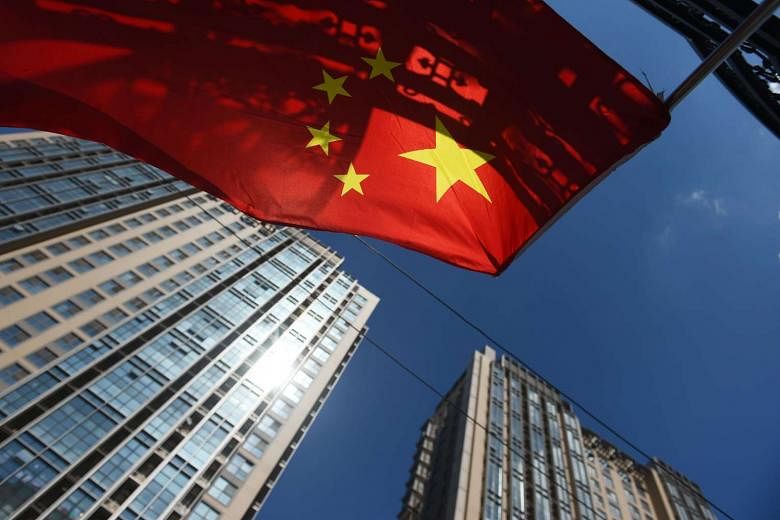1. China watch resumes - but even harder
With a Chinese slowdown blamed for spooking the US Federal Reserve last week into postponing a rate hike, China's flash manufacturing purchasing managers' index on Wednesday (Sept 23) will be closely watched for signs of deterioration in the world's second-biggest economy. Economists polled by Reuters are banking on a slight improvement and any disappointment risks reigniting concerns that the Chinese economy is slowing faster than thought.
"We would caution against pinning hopes on more than a slight stabilisation at weak levels, given continued weak industrial conditions and especially as the effect of recent factory closures will not have completely washed out," economists at brokerage Exane BNP Paribas told Reuters.
2. After Fed decision comes the flood of Fedspeak
After months of global angst and anticipation, the Federal Reserve decided to leave its benchmark interest rate at zero, where it has been since the depths of the financial crisis in 2008. Now, no longer muzzled by the pre-meeting blackout, Fed officials will be out in droves this week to air their views.
The highlight is a speech by Fed chairman Janet Yellen on Thursday (Sept 24) in which she may provide more clues on why the Fed backed down on a rate hike, what it needs to pull the trigger and when that could be.
Already, a couple of Fed officials have spoken over the weekend - and revealed the divisions within the US central bank.
St Louis Fed president James Bullard said on Saturday that he had argued against last week's decision and felt other Fed policymakers had not made a compelling case for yet again delaying a rate hike. Rather than clarify the Fed's direction, it seemed to increase uncertainty about the direction of the US economy, he added.
But San Francisco Fed president John Williams, in remarks on Saturday, laid out the case for caution. He suggested he and others now want more proof that a weak global economy will not pull down the US before deciding to hike rates. But he did add that he still expects rates will rise this year.
The Fed next meets in October and again in December.
3. Greece: Election is over, crisis is not
Greece's youthful and charismatic leftist leader Alexis Tsipras stormed to victory on Sunday (Sept 20) in the country's fifth general election in six years, despite a much-hated bailout deal struck with European creditors.
Hopefully, his renewed mandate will allow him to push for more debt relief and an easing of austerity conditions.
4. Xi Jinping goes to Washington
Chinese President Xi Jinping will arrive in the US on Tuesday (Sept 22) for a state visit. He will meet the CEOs of some of the biggest US companies in Seattle and be hosted by Microsoft founder Bill Gates before heading to Washington for political meetings, including a summit with US President Barack Obama on Thursday, and on to New York City for a series of United Nations events.
While Beijing's strategy has been to try to focus public attention on the economic relationship, and to project a positive image of China, there are some contentious matters on the agenda. They include China's economic slowdown, its handling of a recent currency devaluation and stock market slump, a bilateral investment treaty with the US, new Chinese security rules for foreign technology companies, human rights and China's artificial islands in the disputed South China Sea.
5. Singapore key data this week
Inflation and industrial production data are due on Wednesday (Sept 23) and Friday (Sept 25) respectively.
According to Citi Research, Singapore's industrial production in August is likely to have fallen 6.4 per cent from a year ago, compared with a drop of 4.1 per cent in July.
Sources: Reuters, Wall Street Journal, the Telegraph


